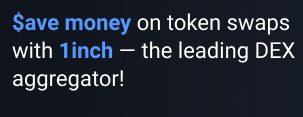Created to facilitate blockchain transparency and accessibility, Etherscan is the go-to resource for users wishing to discover, verify and approve transactions that have taken place on the Ethereum blockchain.
Etherscan is known as Ethereum’s leading “block explorer”. It is essentially a search engine that lets users look up, confirm and validate transactions on the Ethereum decentralised smart contracts platform. By entering an address into the search box, you can view the balance, value and all the transactions made through that address.
Primary function
The team behind Etherscan created the platform as an independent entity whose mission is to facilitate blockchain transparency. The Ethereum blockchain has a public LEDGER which Etherscan.io indexes and then makes searchable in what it believes to be the most transparent and accessible way possible.
Etherscan is not wallet service provider, it does not store people’s private keys and it has no control over the transactions that take place over the Ethereum network. It is also unable to troubleshoot transaction failures.
What can Etherscan be used for?
Users can register and create an account in Etherscan. Normal users can add an address to the “watch list” and be notified by email for an incoming transfer transaction. Developers can access a set of API services that can be used to either build decentralised applications or serve as data feeds for Ethereum blockchain information.
Since Etherscan doesn’t provide wallet services or have access to your private keys, addresses on the watch list can only be used for portfolio tracking or monitoring. To send or transfer Ether or tokens from your account, you’ll need a compatible wallet such as Ethereum Wallet, Parity Waller, MyEtherWallet or Metamask.
Exploring Ethereum addresses
You can use Etherscan to search all transaction histories, including token transfer and contract execution, of any address at Etherscan.io. You simply paste an address into the search bar and the address details will appear.
Etherscan provides information on the balance of ETH at the address, its current value in US dollars, and the total number of transactions made to and from the address.
The transactions tab displays all the transactions that have gone in and out of the address. For each transaction, Etherscan lists information such as the TxHash (transaction hash or transaction ID), the number of the block in which the transaction was recorded, the duration of time since the transaction was confirmed, who it was from and to, the value being transacted, and the total transaction fee.
Checking a TxHash
A TxHash can be used to track and trace the status of a transaction. Once you’ve pasted the TxHash into the search bar, a series of transaction details will appear. These include the TxReceipt status – for example: whether the transaction was successfully sent or failed; the block height (the number of the block in which the transaction was recorded); the value of the transaction; the exact units of gas that were used; the actual cost; and the number of the transaction sent from the sender’s address.
Other features
Etherscan also has a “gas price tracker”, which is useful because the Ethereum network can suffer congestion problems. Congestion drives up gas prices, increases transaction costs and results in some transactions failing. The lower the gas price, the less expensive it is to run and use decentralised applications, so by checking the gas price tracker it’s possible to adjust the gas fee before confirming a transaction.
In addition, there is a whole host of Ethereum charts and statistics, which are handy for all types of users. These include a transaction history chart, address growth chart, the total Ether supply, currency and network information charts, and mining information stats.
Conclusion
Etherscan is a useful resource for all Ethereum Network users to track transactions, check smart contracts, find out stats, and generally stay on top of what’s happening in the Ethereum blockchain. What’s more, it’s free to use and you don’t have to register to use the main features. Whether you’re an investor, miner or developer, it’s a handy way of getting information about the blocks and transactions of Ethereum in one place and in real-time.




